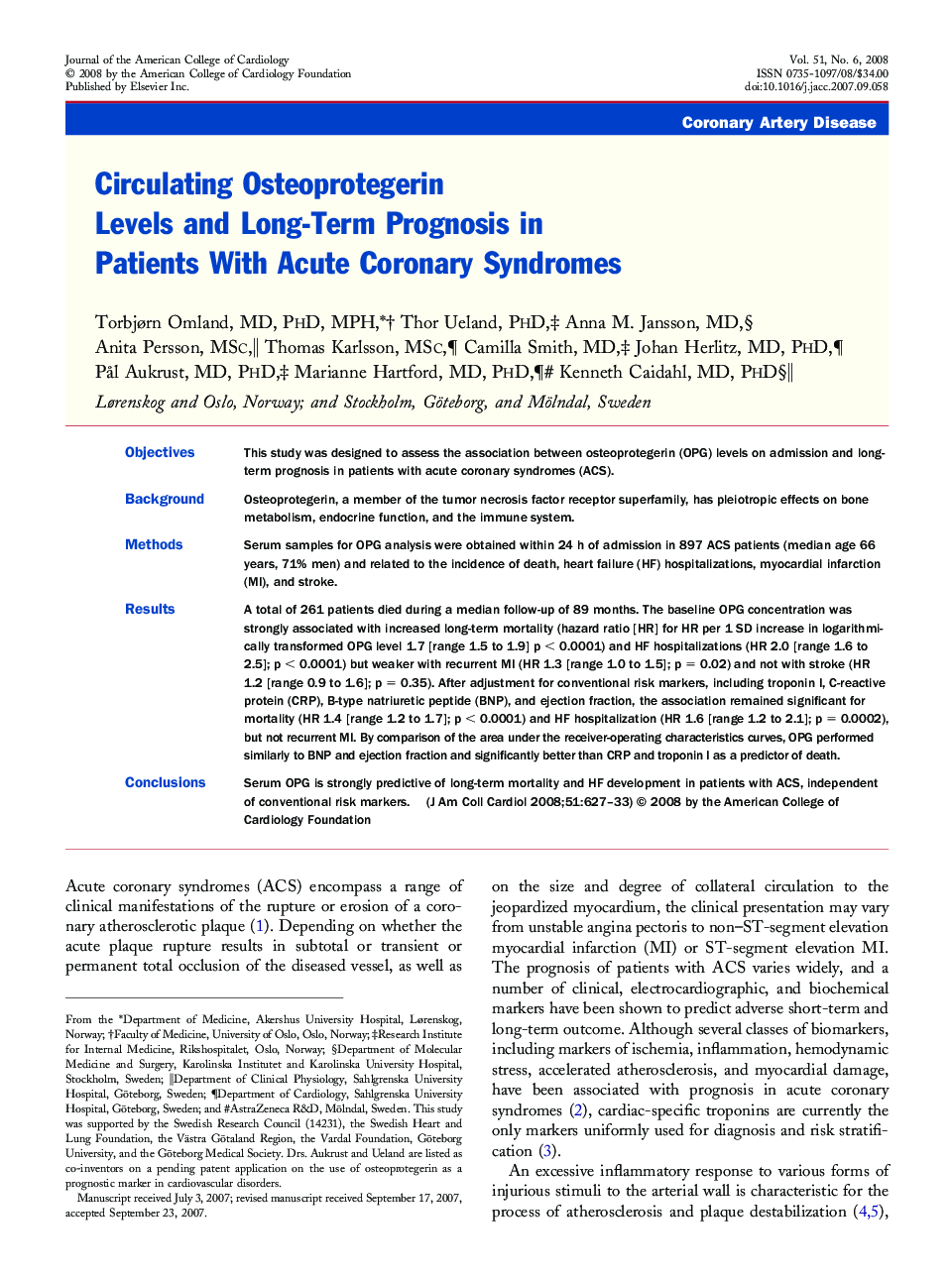| Article ID | Journal | Published Year | Pages | File Type |
|---|---|---|---|---|
| 2952637 | Journal of the American College of Cardiology | 2008 | 7 Pages |
ObjectivesThis study was designed to assess the association between osteoprotegerin (OPG) levels on admission and long-term prognosis in patients with acute coronary syndromes (ACS).BackgroundOsteoprotegerin, a member of the tumor necrosis factor receptor superfamily, has pleiotropic effects on bone metabolism, endocrine function, and the immune system.MethodsSerum samples for OPG analysis were obtained within 24 h of admission in 897 ACS patients (median age 66 years, 71% men) and related to the incidence of death, heart failure (HF) hospitalizations, myocardial infarction (MI), and stroke.ResultsA total of 261 patients died during a median follow-up of 89 months. The baseline OPG concentration was strongly associated with increased long-term mortality (hazard ratio [HR] for HR per 1 SD increase in logarithmically transformed OPG level 1.7 [range 1.5 to 1.9] p < 0.0001) and HF hospitalizations (HR 2.0 [range 1.6 to 2.5]; p < 0.0001) but weaker with recurrent MI (HR 1.3 [range 1.0 to 1.5]; p = 0.02) and not with stroke (HR 1.2 [range 0.9 to 1.6]; p = 0.35). After adjustment for conventional risk markers, including troponin I, C-reactive protein (CRP), B-type natriuretic peptide (BNP), and ejection fraction, the association remained significant for mortality (HR 1.4 [range 1.2 to 1.7]; p < 0.0001) and HF hospitalization (HR 1.6 [range 1.2 to 2.1]; p = 0.0002), but not recurrent MI. By comparison of the area under the receiver-operating characteristics curves, OPG performed similarly to BNP and ejection fraction and significantly better than CRP and troponin I as a predictor of death.ConclusionsSerum OPG is strongly predictive of long-term mortality and HF development in patients with ACS, independent of conventional risk markers.
